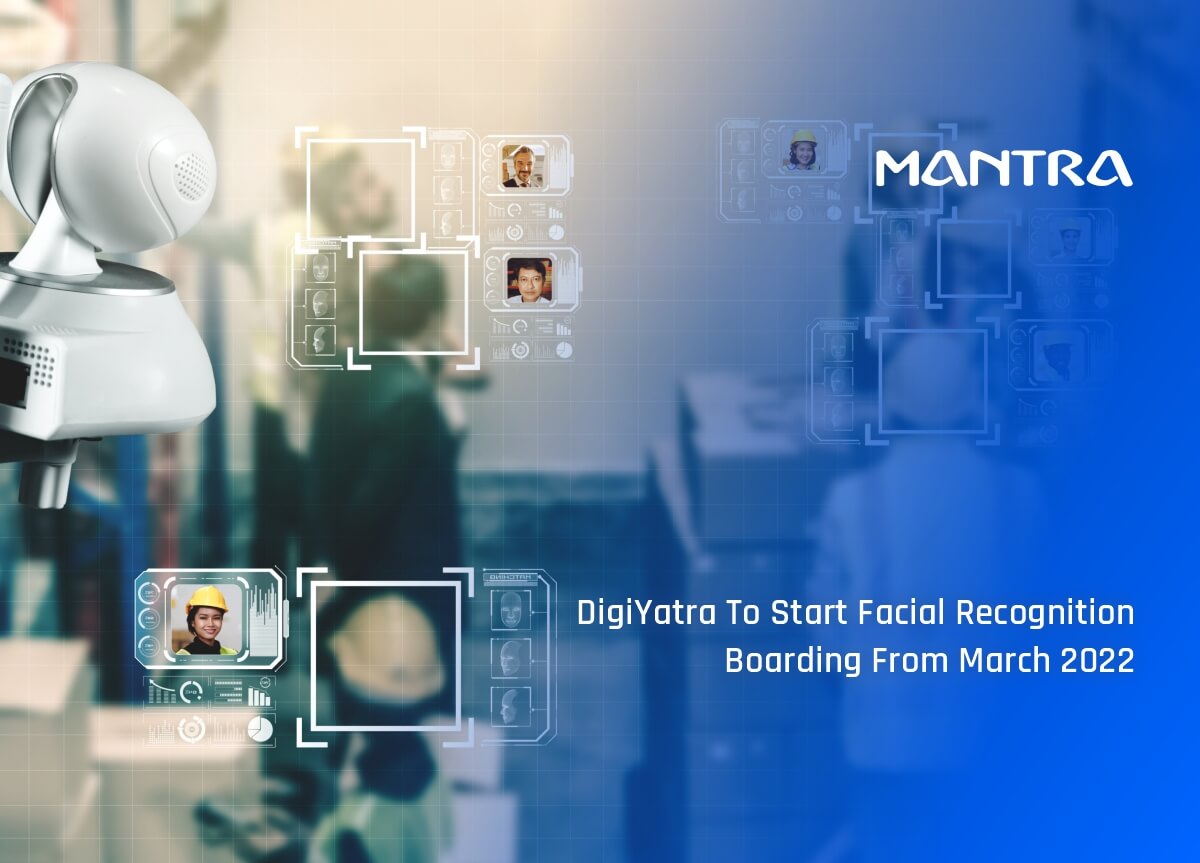The Indian government launched the DigiYatra initiative to make air travel more paperless and seamless. India plans to implement a face recognition boarding system at four airports by March 2022, said the Minister of Aviation. For the first time in India, facial recognition boarding tickets will be available at four airports: Varanasi, Pune, Kolkata, and Vijayawada. By digitising processes, the DigiYatra programme aims to create a hassle-free board. It is also should note that those who still want to go the traditional system can go with it.
The facial detection technology
Facial detection is a technique that uses artificial intelligence to recognise a face from an image or video. The system reads different data points from a person's face and compares them to a previously saved template image to verify the person.
Face recognition is one of the most convenient biometric identification technologies since it only requires individuals to look at a camera. Face biometrics have been approved as the primary biometric authentication technique for aviation by the International Civil Aviation Organization (ICAO). It has also issued guidelines for the sharing of biometric data at airports.
How will DigiYatra work?
DigiYatra is a comprehensive digital solution for air travel. DigiYatra aims to use face recognition at each point where authentication is required. It begins at the self-enrollment kiosk to activate the DY-ID, or passengers can send the travel details and facial biometrics through an app to the Biometric Boarding System of the respective departing airport. Then passengers must show their face at the facial recognition device at the DigiYatra E-gate. Like the same, face biometric detection might be employed at the check-in/bag drop, PESC(pre-embarkation security check), immigration check, and boarding E-gate.
At the immigration counter, passengers might need to provide a biometric E-passport to enable biometric-hassle-free verification. The immigration officer will check the E-passport with a passport reading machine and simultaneously scan the passenger's face to authenticate the person with the passport. At the boarding gate, passengers need not wait any longer. They can pass seamlessly through the boarding gate. The face recognition device installed at the boarding gate will scan the passenger's face and open the gate; there is no need to wait in the queue. If the passenger passes through the wrong gate, the gate won't open.
Biometric data management in DigiYatra
The airport authority utilises ISO standards and algorithms and devices recognised by the National Institute of Standards and Technology (NIST) that meet data privacy and data protection criteria. Passengers' shared data, including face biometrics, will be retained for the duration of their transit through the airport and for no longer than 24 hours following the flight's takeoff or departure.
Benefits of DigiYatra
Passengers are not required to provide paper identification at several checkpoints.
Streamlined boarding while increasing gate security. Only those on the right gates will be permitted to pass through the checkpoints.
Fast processing of luggage.
Less human interaction is required, and contactless verification is possible.
Reduce queue at the immigration and boarding.
Information about passenger traffic is updated in real-time for the airport authorities.

Online money making
Hi Dear, Thank you very much for this useful article
Reply